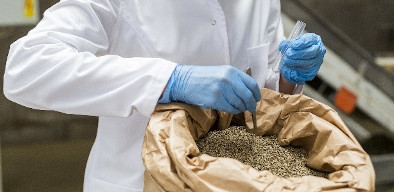US hemp production: The facts about interstate hemp shipment

Don Shelly
The news in the United States has recently been filled with stories of hemp shipments being seized by various police forces around the country, on the grounds that it looks like marijuana (this story from Idaho involving a Colorado CBD manufacturer made headlines just a few weeks ago).
After consulting the Federal Register and reviewing the Department of Agriculture, Agricultural Marketing Service’s 7 CFR, Part 990: "Establishment of a Domestic Hemp Production Program", we’ve discovered a few tidbits of information worth highlighting that haven’t been mentioned in the news.
I. Introduction
• Effective Date: This rule is effective from October 31, 2019 through November 1, 2021.
• The 2018 Farm Bill allows for the interstate transportation and shipment of hemp in the United States.
• As defined in the 2018 Farm Bill, the term “hemp” means the plant species Cannabis sativa L. and any part of that plant, including the seeds thereof and all derivatives, extracts, cannabinoids, isomers, acids, salts and salts of isomers, whether growing or not, with a delta-9-tetrahydrocannabinol concentration of not more than 0.3 percent on a dry weight basis.
Section IV – Interstate Commerce
• Nothing in this rule prohibits the interstate commerce of hemp. No State or Indian Tribe may prevent the shipment of hemp produced in accordance with this part and with section 7606 of the 2014 Farm Bill through their area or territory.
• In addition to establishing a national production, Congress expressly preempted state law with regard to the interstate transportation of hemp. Section 10114 of the 2018 Farm Bill states that “no State or Indian Tribe shall prohibit the transportation or shipment of hemp or hemp products produced in accordance with subtitle G of the Agricultural Marketing Act of 1946 (as added by section 10113) through the State or the territory of the Indian Tribe, as applicable.” Thus States and Indian Tribes may not prevent the movement of hemp through their states or territories, even if they prohibit its production.
• Congress also expressly preempted a State’s ability to prosecute negligent violations of its plan as a criminal act in section 297B(e)(c). That preemption is incorporated into this rule.
We’ll talk more about THC determination in our next post. If you need a consistent source of cannabinoid certified reference materials for your hemp testing, please visit our cannabinoids page on our web shop.
